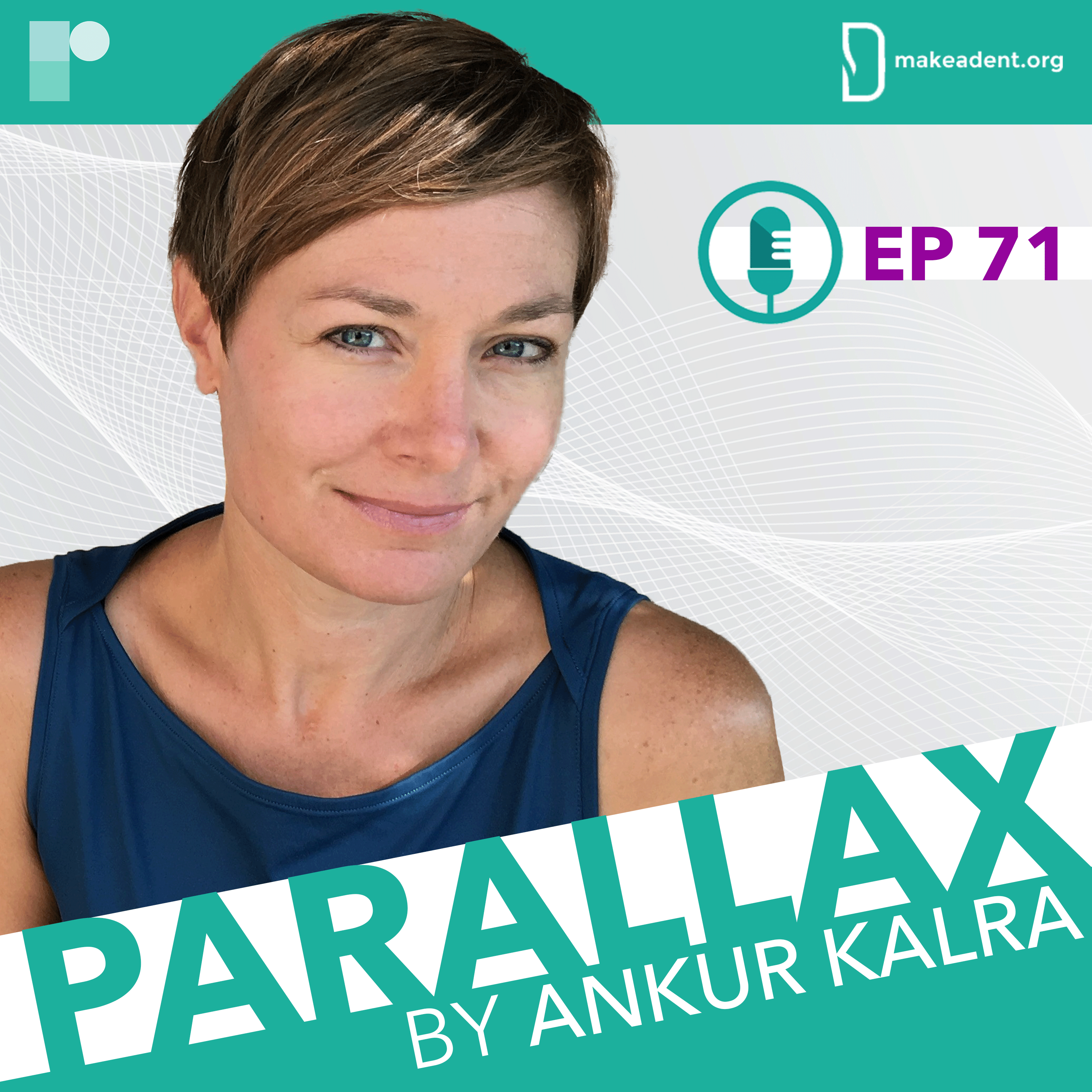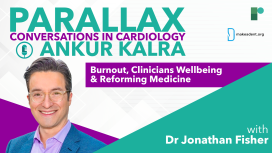
In 1999, when Shelley Wood started her career in medical journalism, there were only a few online resources. The main function of reporting on medical news was to make information accessible. Two decades later there is an abundant number of sources covering cardiology news, but TCTMD, home of Ms Wood, stands out with its “lively, thought-provoking, and rigorously objective journalism".1
This week’s guest on Parallax is Shelley Wood, Managing Editor of TCTMD, Editorial Director at CRF and 2022 recipient of the WomenHeart’s Wenger Award for Excellence in Media.
In this engaging episode, Ankur asks Shelley about her journey to medical journalism from theheart.org to TCTMD. Shelley recalls the early days of online news and shares her thoughts on what makes a content stand out in 2022. We learn more about the editorial decisions that go into leading one of the most trusted cardiology news services. Shelley, author of a bestselling novel, talks about how she balances her journalistic work with her creative writing.
How does Shelley Wood think about cardiology journalism today? What makes content good? What are Shelley’s plans as an editor and as a writer?
1. www.crf.org/crf/news-and-events…ditorial-director-2
Questions and comments can be sent to “podcast@radciffe-group.com” and may be answered by Ankur in the next episode. Guest, @ShelleyWood2 hosted by @AnkurKalraMD.
Produced by @RadcliffeCARDIO.




What is the Global Cardiology University project? How does Dr Anavekar encourage trainees to re-examine their role in patient care? What is his advice to our listeners?

As Dr Kalra asks Dr Rao about the ways in which early career faculty members can get involved with the organization at a state level. Dr Rao shares his insider tips and highlights key events where individuals can further their participation.
How can you get involved with your local ACC chapter? How can you improve your leadership skills? What is Dr Rao’s advice for our listeners?

He explains how the complexity of nutrition and the compounds generated by the gut microbiome can impact our health. We learn more about three compounds produced by our gut microbiome that have a strong connection with heart disease.
Through this conversation, Dr Vuyisich invites us to reframe our approach to nutrition and prevention as a question of food education and data-driven science.


This episode features a vascular neurologist and an interventional cardiologist who will discuss the relationship between their two fields of medicine.

In this rich and insightful discussion, Dr Kittleson talks about the origins of famous #kittlesonrules, a collection of tips for doctors shared on Twitter, and her thoughts on mentorship. We learn more about Mastering the Art of Patient Care. Dr Kalra and Dr Kittleson discuss strategies for managing difficult situations in patient care.

What do you need to know about hospital investigations? What is the difference between OPPE and FPPE? How can you get educated on hospital bylaws and processes?




What is the Global Cardiology University project? How does Dr Anavekar encourage trainees to re-examine their role in patient care? What is his advice to our listeners?

As Dr Kalra asks Dr Rao about the ways in which early career faculty members can get involved with the organization at a state level. Dr Rao shares his insider tips and highlights key events where individuals can further their participation.
How can you get involved with your local ACC chapter? How can you improve your leadership skills? What is Dr Rao’s advice for our listeners?

He explains how the complexity of nutrition and the compounds generated by the gut microbiome can impact our health. We learn more about three compounds produced by our gut microbiome that have a strong connection with heart disease.
Through this conversation, Dr Vuyisich invites us to reframe our approach to nutrition and prevention as a question of food education and data-driven science.





